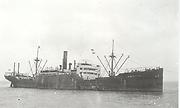 Hartlepool Sports & Leisure
Hartlepool Sports & Leisure
- Cinemas, Theatres & Dance Halls
- Musicians & Bands
- At the Seaside
- Parks & Gardens
- Caravans & Camping
- Sport
 Hartlepool Transport
Hartlepool Transport
- Airfields & Aircraft
- Railways
- Buses & Commercial Vehicles
- Cars & Motorbikes
- The Ferry
- Horse drawn vehicles
 A Potted History Of Hartlepool
A Potted History Of Hartlepool
- Unidentified images
- Sources of information
- Archaeology & Ancient History
- Local Government
- Printed Notices & Papers
- Aerial Photographs
- Events, Visitors & VIPs
 Hartlepool Trade & Industry
Hartlepool Trade & Industry
- Trade Fairs
- Local businesses
- Iron & Steel
- Shops & Shopping
- Fishing industry
- Farming & Rural Landscape
- Pubs, Clubs & Hotels
 Hartlepool Health & Education
Hartlepool Health & Education
- Schools & Colleges
- Hospitals & Workhouses
- Public Health & Utilities
- Ambulance Service
- Police Services
- Fire Services
 Hartlepool People
Hartlepool People
 Hartlepool Places
Hartlepool Places
 Hartlepool at War
Hartlepool at War
 Hartlepool Ships & Shipping
Hartlepool Ships & Shipping

Nigaristan Gallery
Gallery images
Related items :
 Hartlepool Ship Losses - First World War
Hartlepool Ship Losses - First World War
This section will, in time, contain the stories of more than 450 merchant ships built or owned in the Hartlepools, and which were lost during the First World War. As an illustration of the truly global nature of shipbuilding, these ships were owned by companies from 22 different countries, including more than 30 sailing under the German flag at the outbreak of war.
 Nigaristan
Nigaristan
 Created by unknown
Donated by Mr. Bert Spaldin
Created by unknown
Donated by Mr. Bert SpaldinThe steamship Nigaristan under tow.
More detail » Nigaristan - Trial
Nigaristan - Trial
TRIAL TRIP OF THE s.s. NIGARISTAN
“Northern” Daily Mail 1911
The s.s. Nigaristan, proceeded on her trial trip yesterday, and after adjusting compasses in Hartlepool bay, proceeded to the measured mile for a test of her speed.
The vessel has been built by Messrs. Irvine’s Shipbuilding and Dry Docks Co., Ltd., for Messrs. F. C. Strick and Co., Ltd., of Swansea and London. Her dimensions are 385 feet long by 50 feet beam extreme by 30 feet depth moulded. A detailed description has already appeared in the “Mail”
The propelling machinery, which has been supplied and fitted by Messrs. Richardsons, Westgarth, and Co., Ltd., Hartlepool, has been built to a very complete specification, and embodies the latest practice in marine engineering.
The engines are of the triple-expansion type having cylinders 28in., 46in., and 77in. diameter by 48in. stroke, with large forced draught boilers working at a pressure of 180lbs. per square inch. A feature of the design of the machinery is the adoption of the “contraflo” system of condensing and feed heating. This consists of both main and auxiliary condenser of the “contraflo” type independent feed pumps, cascade filter, and a special design of feed heating arrangement whereby the whole of the auxiliary exhaust steam is utilised. In addition to the usual general purpose and feed donkey a separate float controlled feed pump is fitted for use in port, and also a separate circulating pump for the auxiliary condenser. The evaporator is of the Morrison vertical radial type, and other accessories include steam ash hoist, etc. The propeller is arranged with loose blades of bronze, and has been designed to suit the special conditions under which the engines will be run.
The ship and machinery have been constructed to the specification and under the personal supervision of Mr. A. Walker, superintendent engineer to Messrs. F. C. Strick and Co., London and Swansea.




